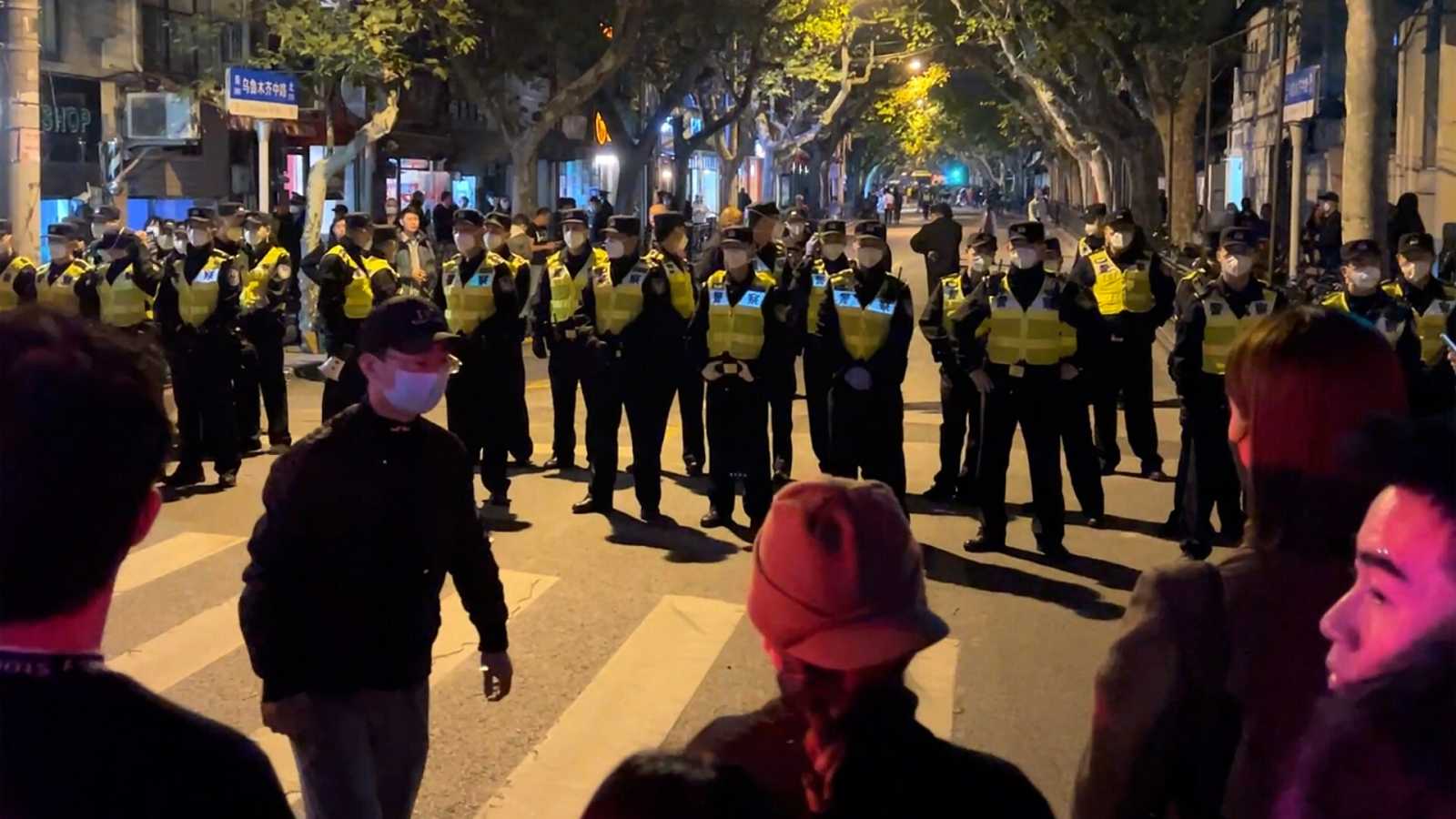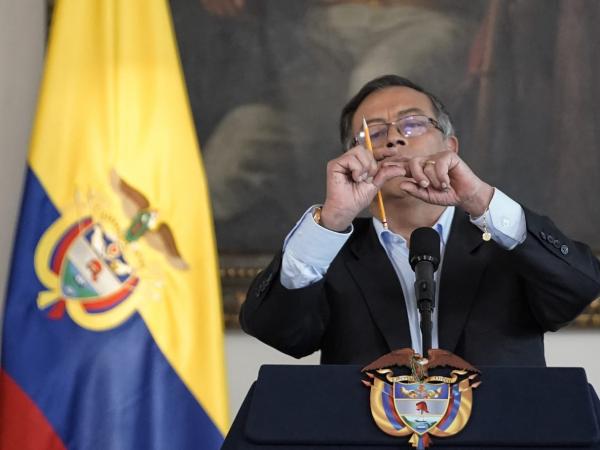China’s top security body called for “strong measures” after several days of protests in major cities due to strict sanitary lockdowns.
Security forces have been deployed across China in the face of demonstrations not seen for decades. In a statement, the Communist Party’s Central Political and Legal Affairs Commission said it was “necessary to crack down on the infiltration and sabotage activities of hostile forces in accordance with the law,” according to a report of a meeting reviewed by the state news agency Xinhua.
Today, Tuesday, the authorities decided to accelerate the vaccination of the elderly against COVID-19. The National Health Commission pledged to “accelerate the increase in the vaccination rate of people over 80 years of age, and to continue increasing the vaccination rate of people from 60 to 79.”
Currently, only 65.8% of the population over the age of 80 are fully vaccinated, according to the Commission.
The limited vaccination coverage of the elderly is one of the government’s arguments to defend its health policy, which is expressed in confinements, quarantines upon arrival from abroad and almost daily tests for the population.
In force for almost three years, this policy was the target of popular anger in demonstrations this weekend. Some protesters even called for the resignation of President Xi Jinping, recently elected for a third term.
The triggering element was a deadly fire last week in Urumqi, capital of the Xinjiang region (northwest). The work of the firefighters would have been hampered by health regulations, arguments that the government denied on Monday.
“We are not foreign agents, we are Chinese citizens. China should have diverse voices,” said one woman as another held up a banner paying tribute to the victims of the Urumqi fire.
Although the Chinese government is sticking to its policy on COVID-19, there are signs that the authorities are looking to soften some rules to contain the mobilizations.
In Beijing, padlocking the gates of residential areas was prohibited, the Xinhua agency reported, a practice that caused anger for leaving people locked up in the face of outbreaks of contagion.

















